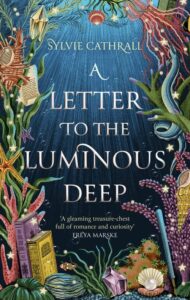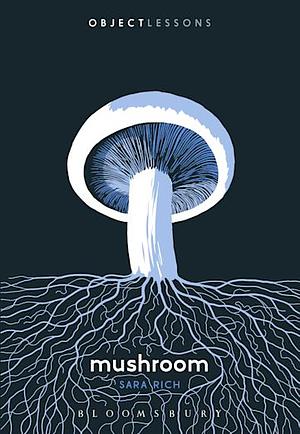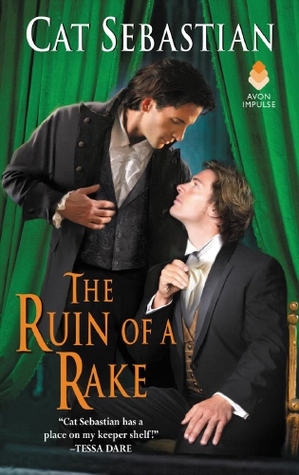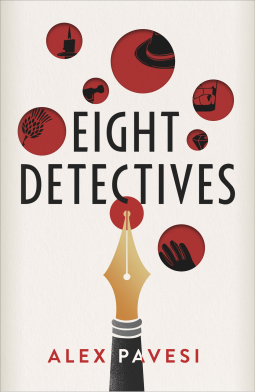
A Letter to the Luminous Deep
by Sylvie Cathrall
Genres: Fantasy, RomancePages: 368
Series: Luminous Deep #1
Rating:

Synopsis:A beautiful discovery outside the window of her underwater home prompts the reclusive E. to begin a correspondence with renowned scholar Henerey Clel. The letters they share are filled with passion, at first for their mutual interests, and then, inevitably, for each other.
Together, they uncover a mystery from the unknown depths, destined to transform the underwater world they both equally fear and love. But by no mere coincidence, a seaquake destroys E.’s home, and she and Henerey vanish.
A year later, E.’s sister Sophy, and Henerey’s brother Vyerin, are left to solve the mystery of their siblings’ disappearances with the letters, sketches and field notes left behind. As they uncover the wondrous love their siblings shared, Sophy and Vyerin learn the key to their disappearance – and what it could mean for life as they know it.
I received a copy of this book for free in exchange for an honest review. This does not affect my opinion of the book or the content of my review.
I really loved A Letter to the Luminous Deep, which I believe is Sylvie Cathrall’s debut. When I came up for air after finishing it, I was really startled by the number of DNFs, ambivalent reviews, and people who downright hated it. I can understand why, though: it’s written in an entirely epistolary format, which mostly works, and the letters are written with a sort of Regency-level formality and style. That means the execution of the plot takes some serious time, since the letters need to build characters and relationship in order to make the plot feel satisfying.
The frame story behind why these letters have been collected is equally important, in the end, to the story revealed in the letters themselves. There’s basically three threads:
1. Henery and E. form a friendship, discover something mysterious, and investigate it, ultimately leading to their disappearance;
2. E.’s sister Sophy is part of an expedition deep underwater to study wildlife, which encounters something strange as well;
3. Sophy and Vyerin (Henery’s brother) try to piece together their siblings’ archive of letters to understand how their connection formed and what happened to them.
The third thread is fraught with grief and fondness, as Sophy and Vyerin try to figure out what their lives look like without their siblings, try to give comfort to one another, and work through the loss to remember who their siblings were and share something of that. The first and second threads take time to reveal their secrets, and we discover what happened at the same pace as Sophy and Vyerin come to understand it themselves.
It’s a story that rewards some patience, and which may depend on how well the letters hit for you. I had no trouble telling who was writing what letter, though I know other readers did, and I loved E. and her bravery in vulnerability, discussing what is clearly obsessive-compulsive disorder, and possibly also social anxiety or maybe generalised anxiety disorder. I thought that portrayal was well done, as someone who has OCD/GAD, and I wasn’t surprised to learn that Cathrall has OCD. (I didn’t find it triggering, for what it’s worth, though the things that get to me are a little different from E.’s triggers.)
I’ve seen people describe this one as cosy, and I think it both is and isn’t. There’s a deep sadness here in knowing from the start that E. and Henery are gone, and in following Vyerin and Sophy’s path to understand why they died.
There are a few points that felt overly awkward to me in the epistolary format, and the one that jumped out was Henery and E.’s first meeting, where we know what happened because they wrote notes to each other on a programme because E.’s brother is putting on some kind of performance that’s too loud for them to hear each other. It’s a reasonably neat way of getting them into the same place but preserving a text record, but what they’ve supposedly written to each other (in full sentences, with punctuation) doesn’t ring true — even lampshaded by the commentary of Sophy, who says her sister would’ve used full sentences to calm herself down.
Still, for the most part it worked well for me, and I felt enchanted. I’m eager to read the next book, and wondering how on earth it can be achieved through the medium of letters.
Rating: 5/5












